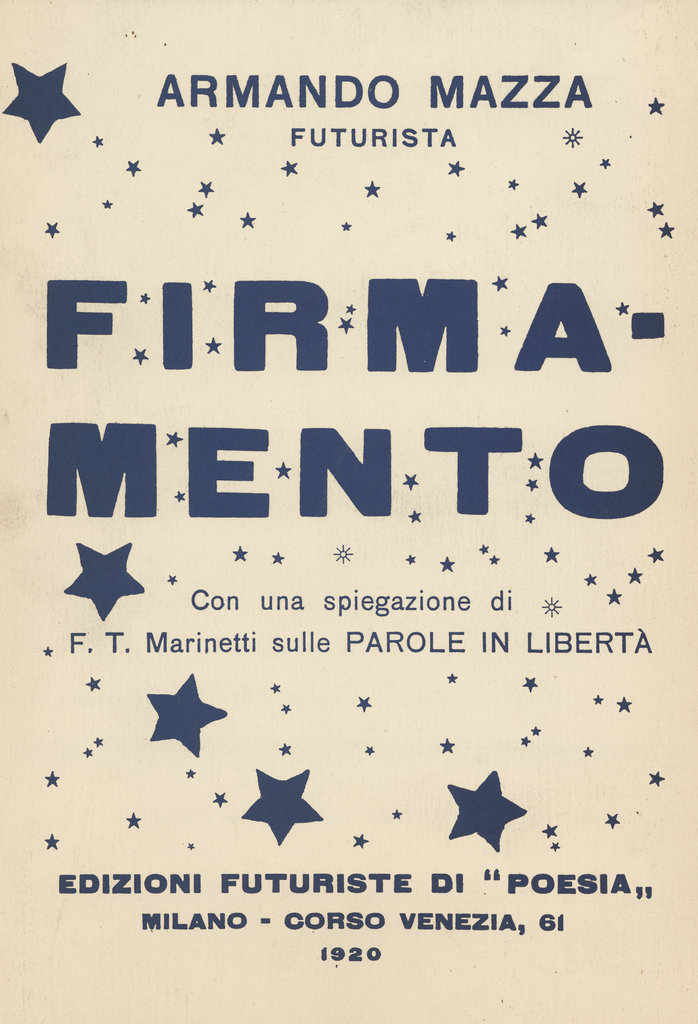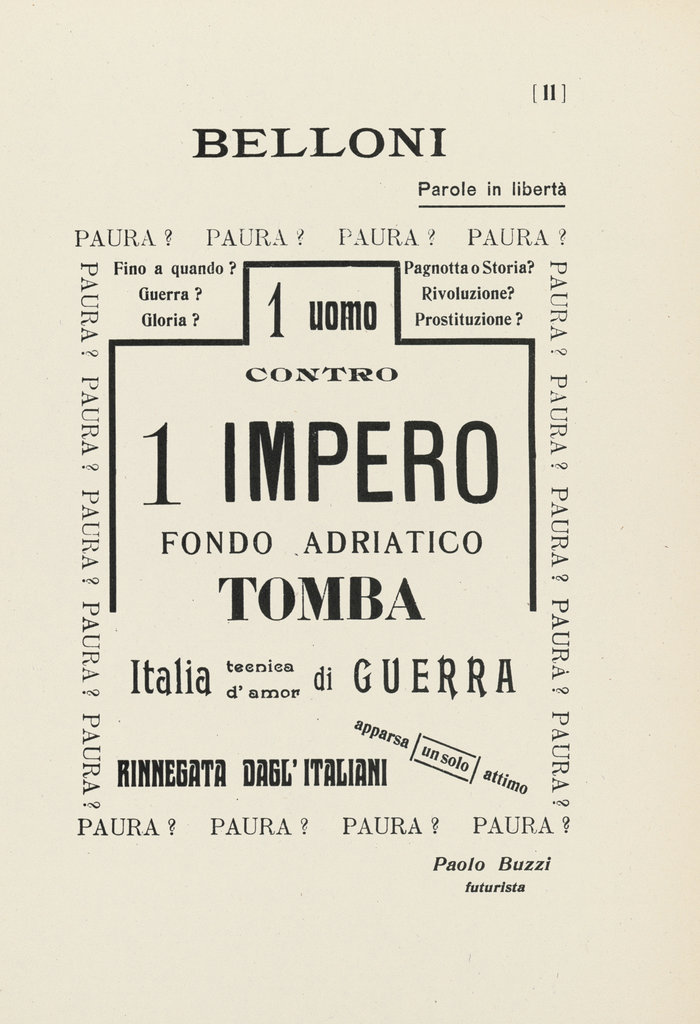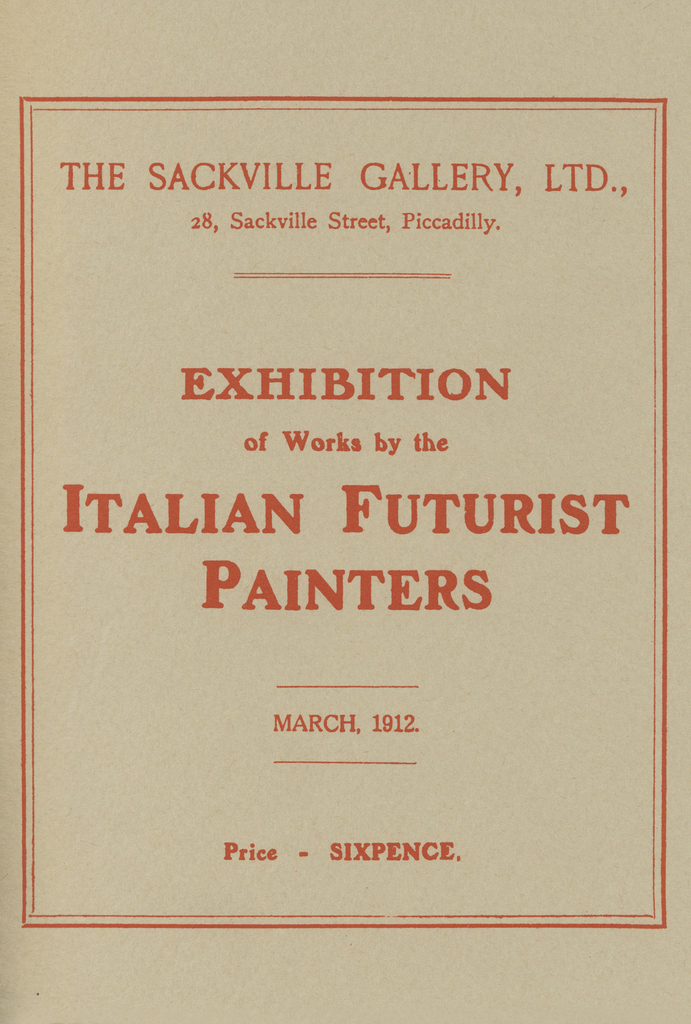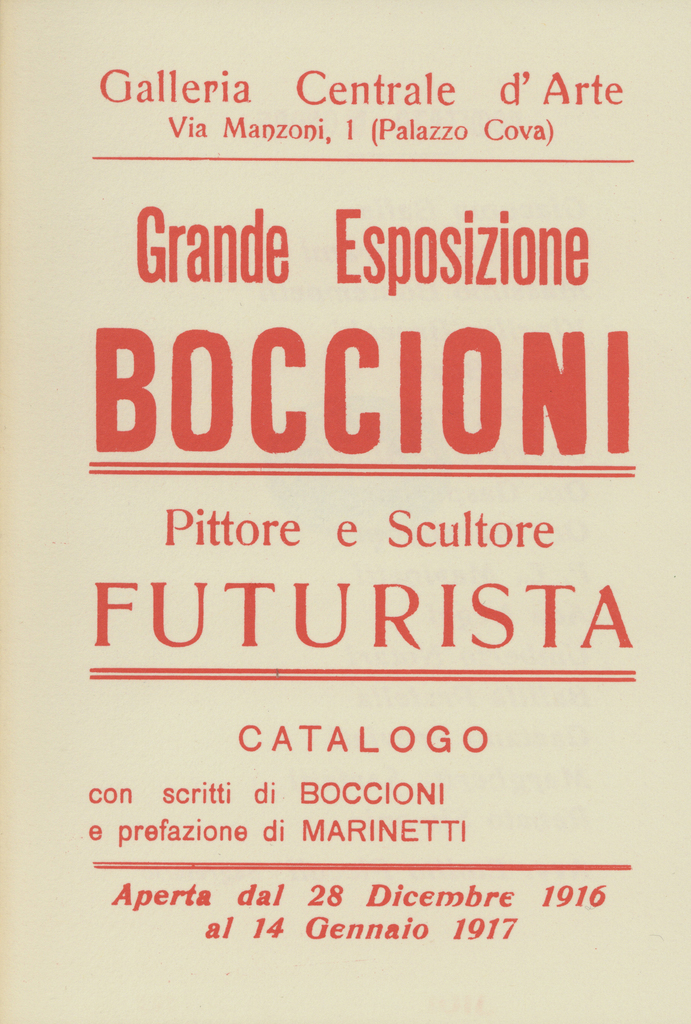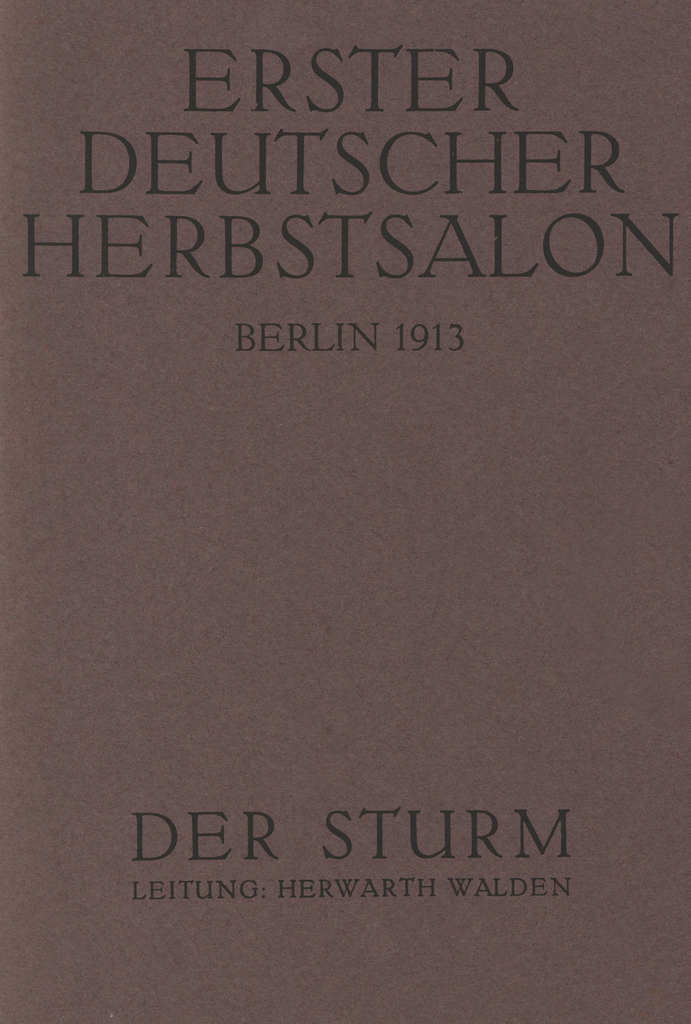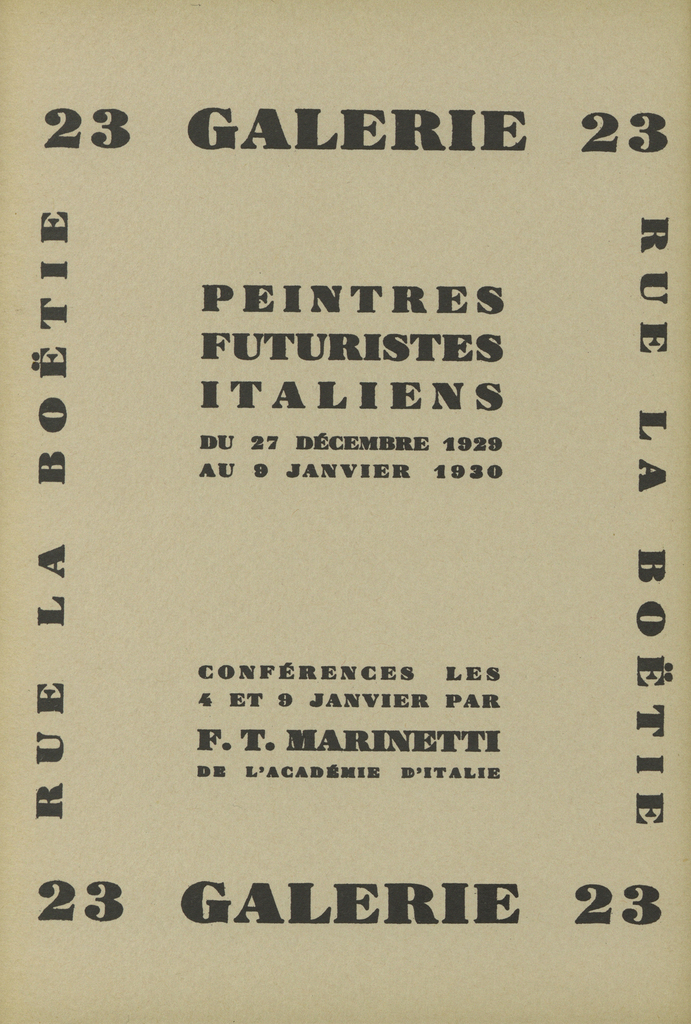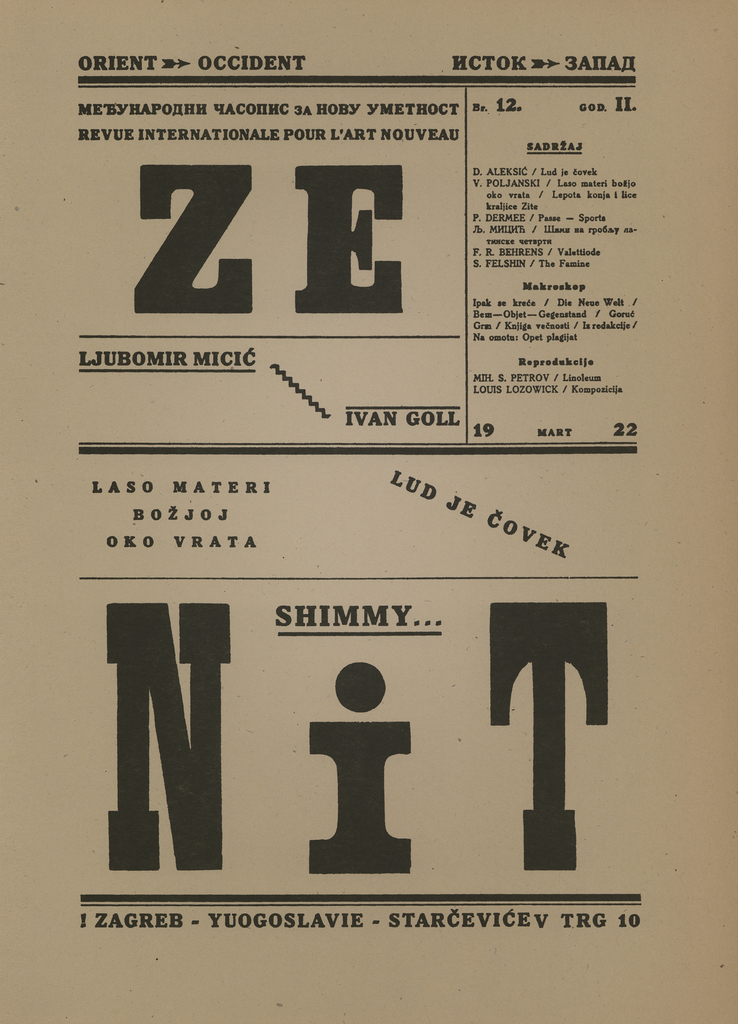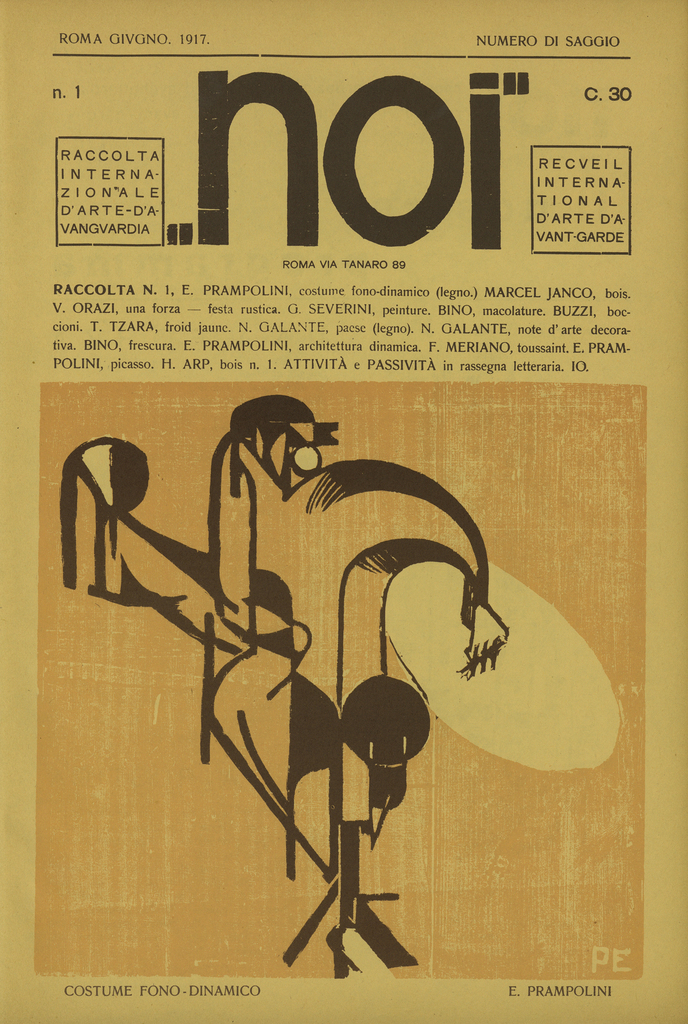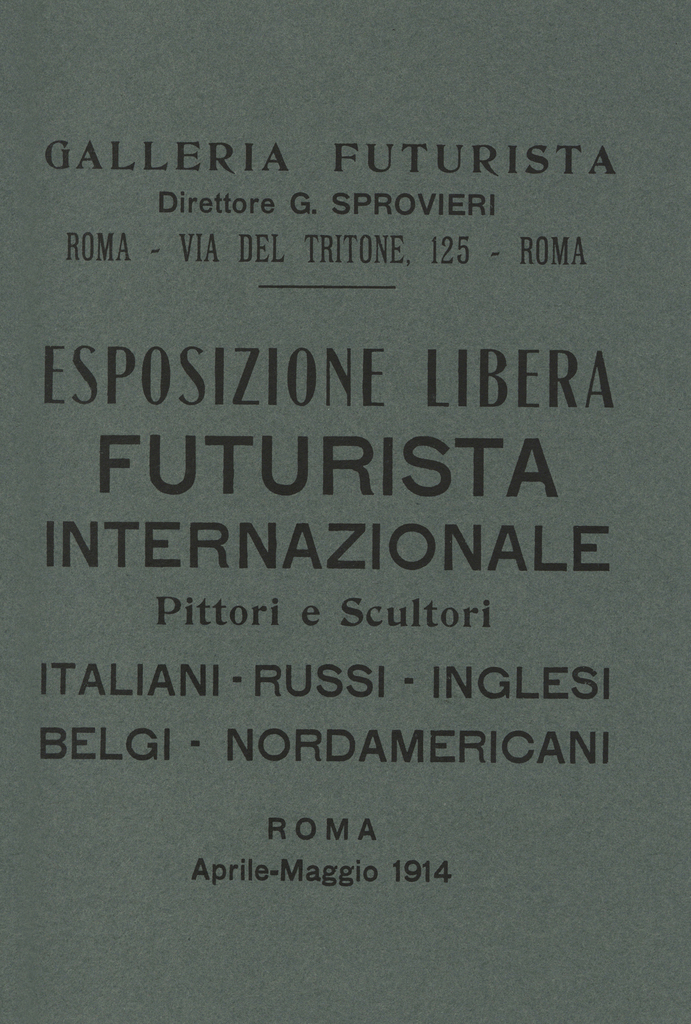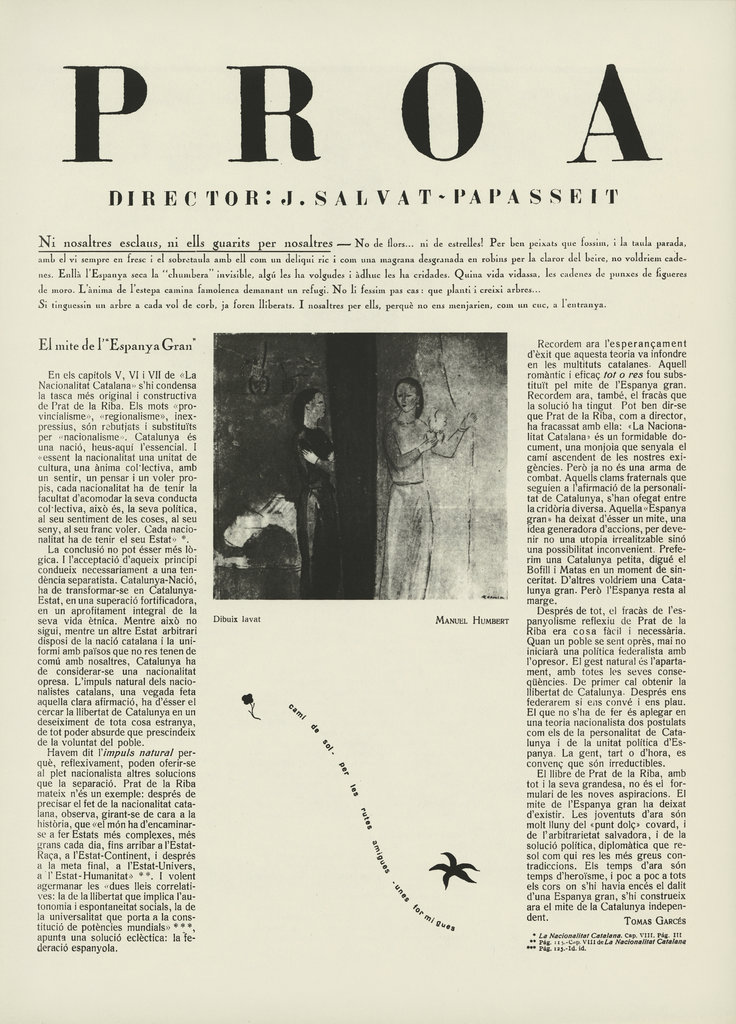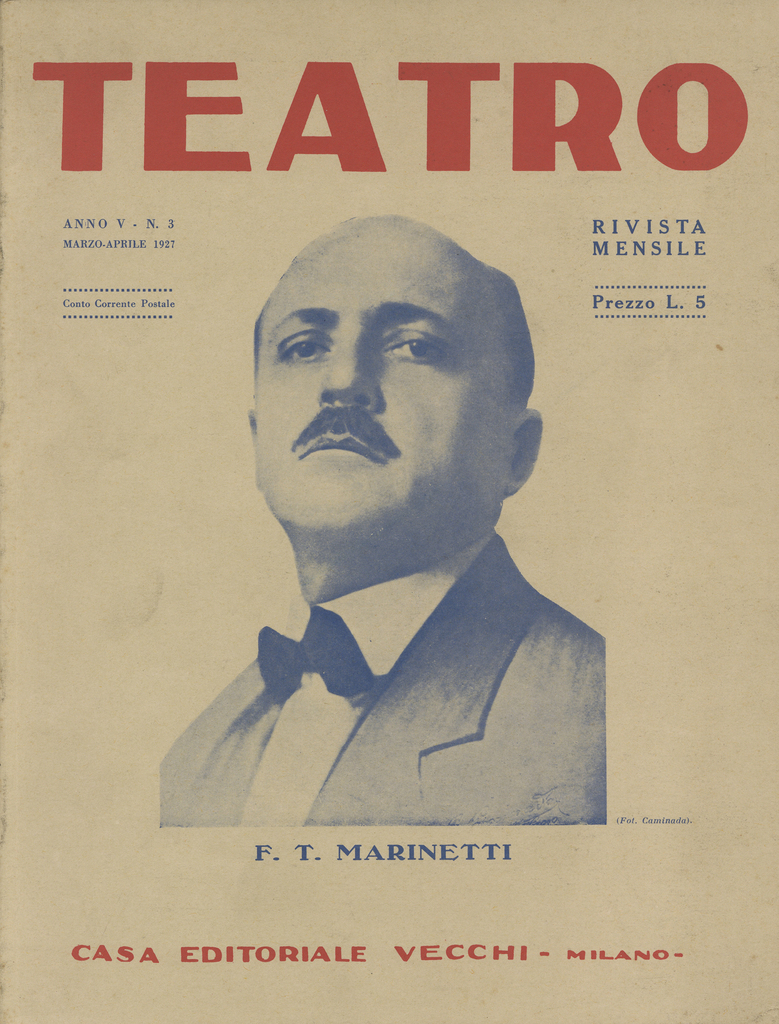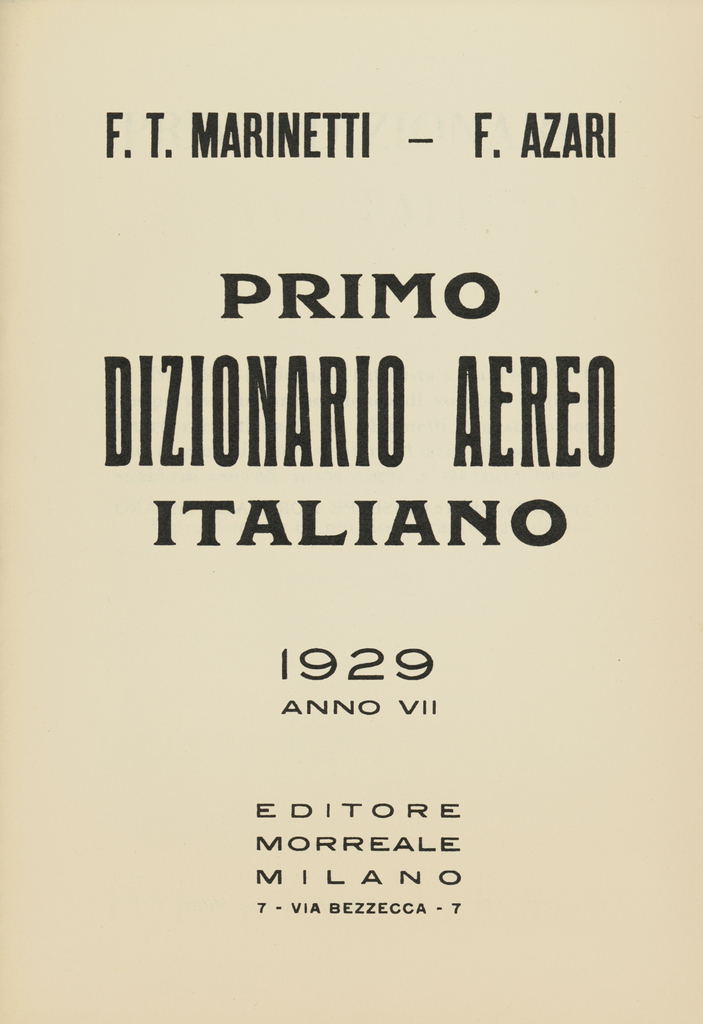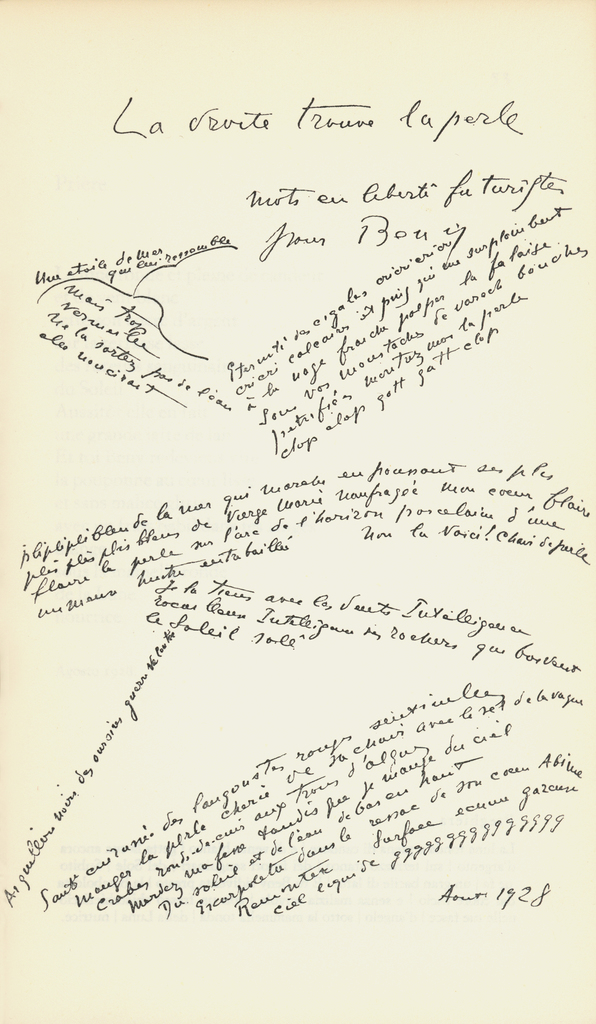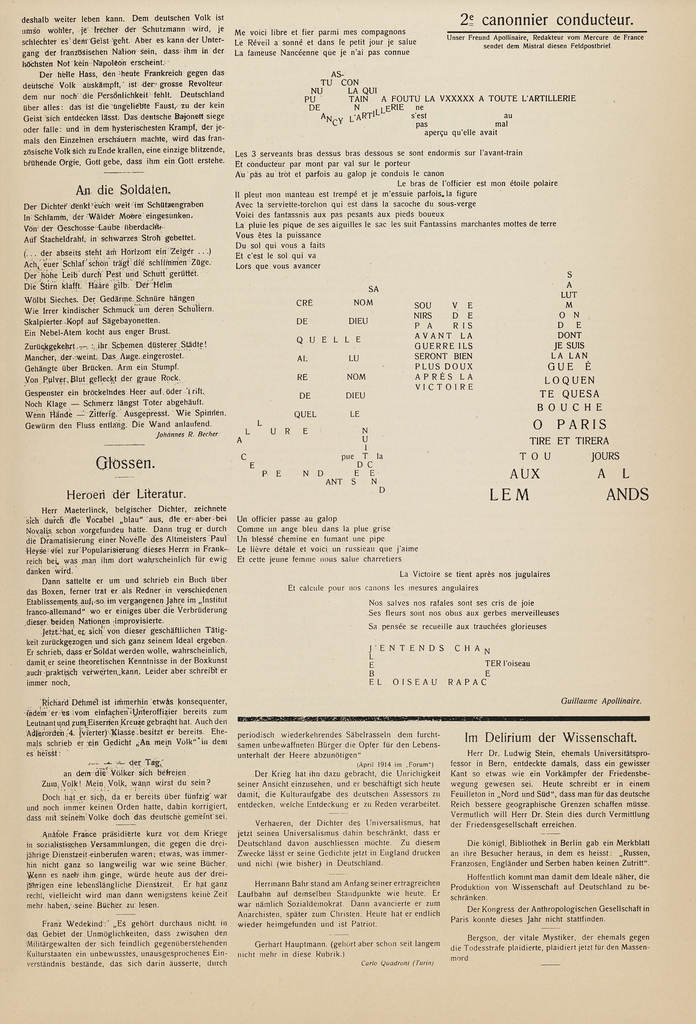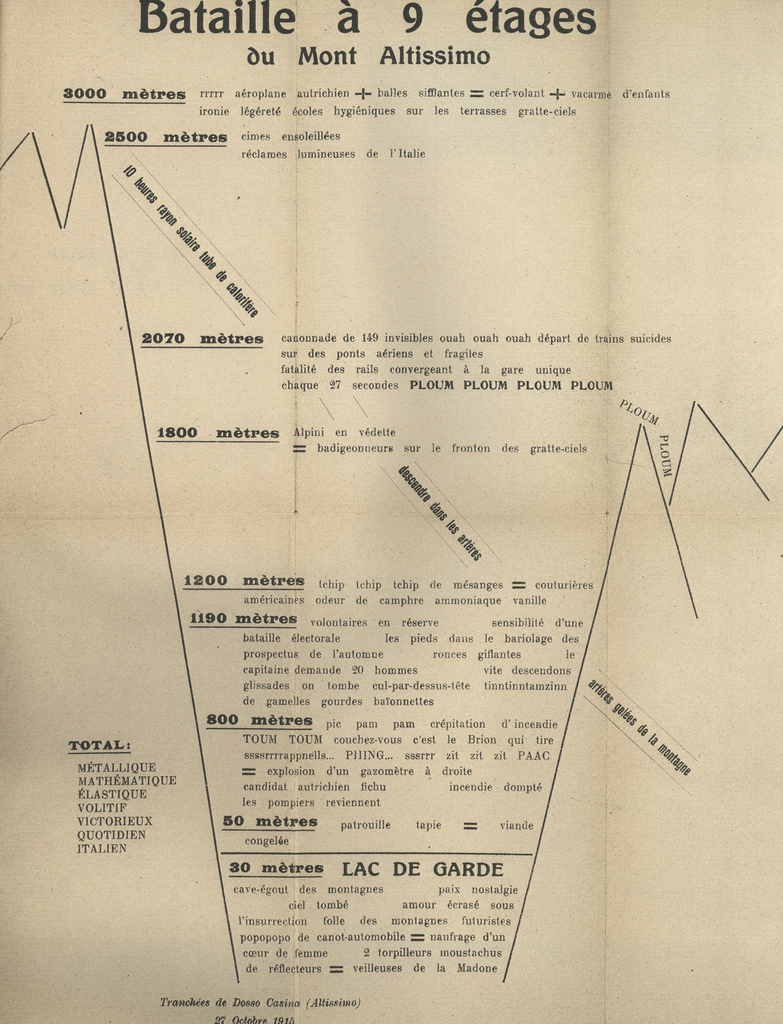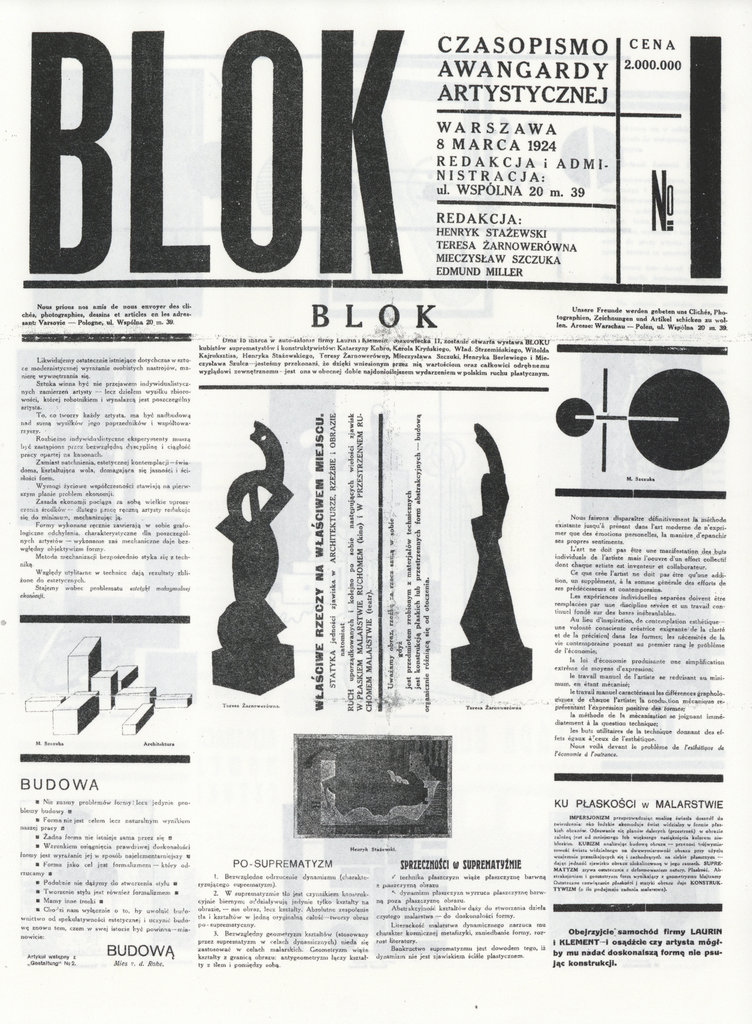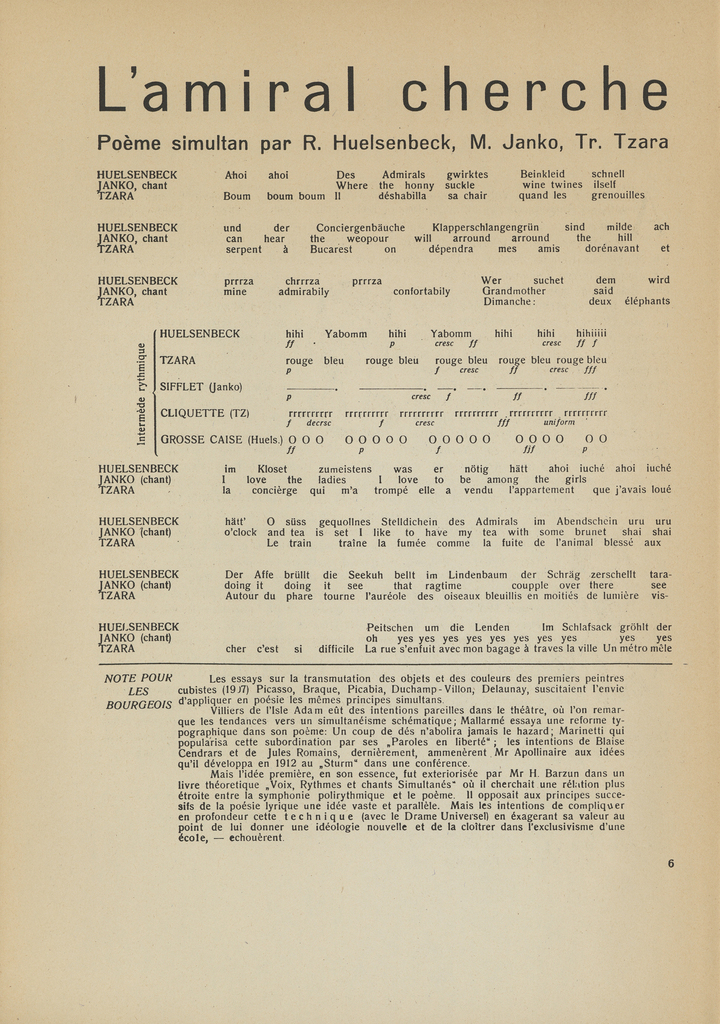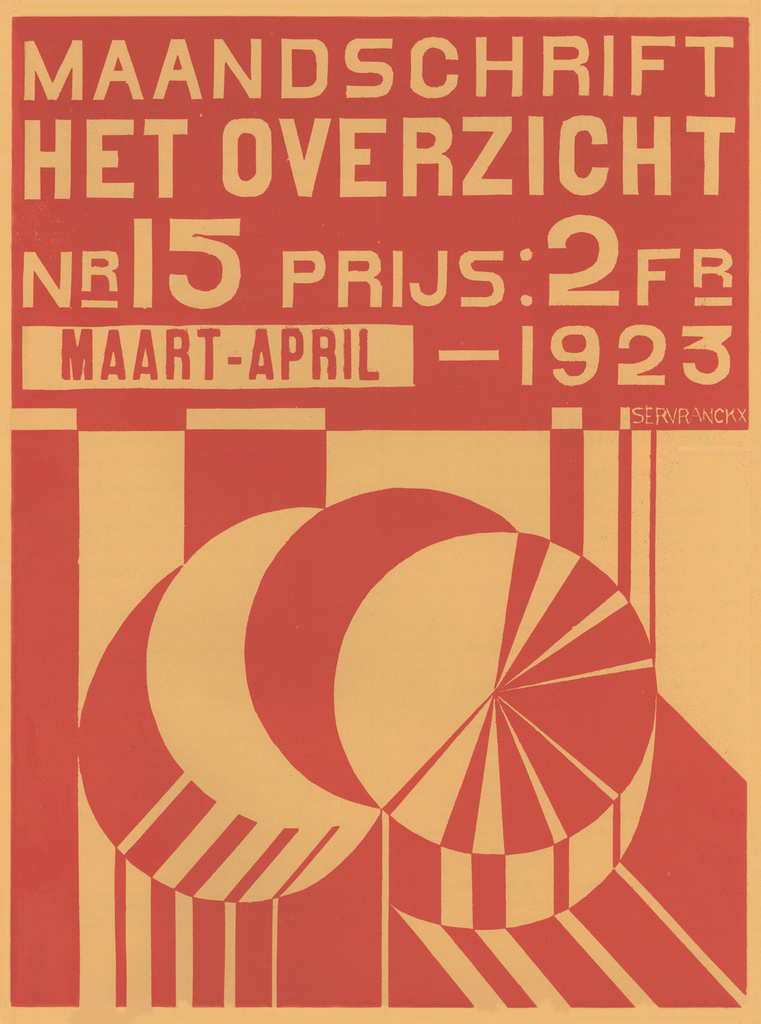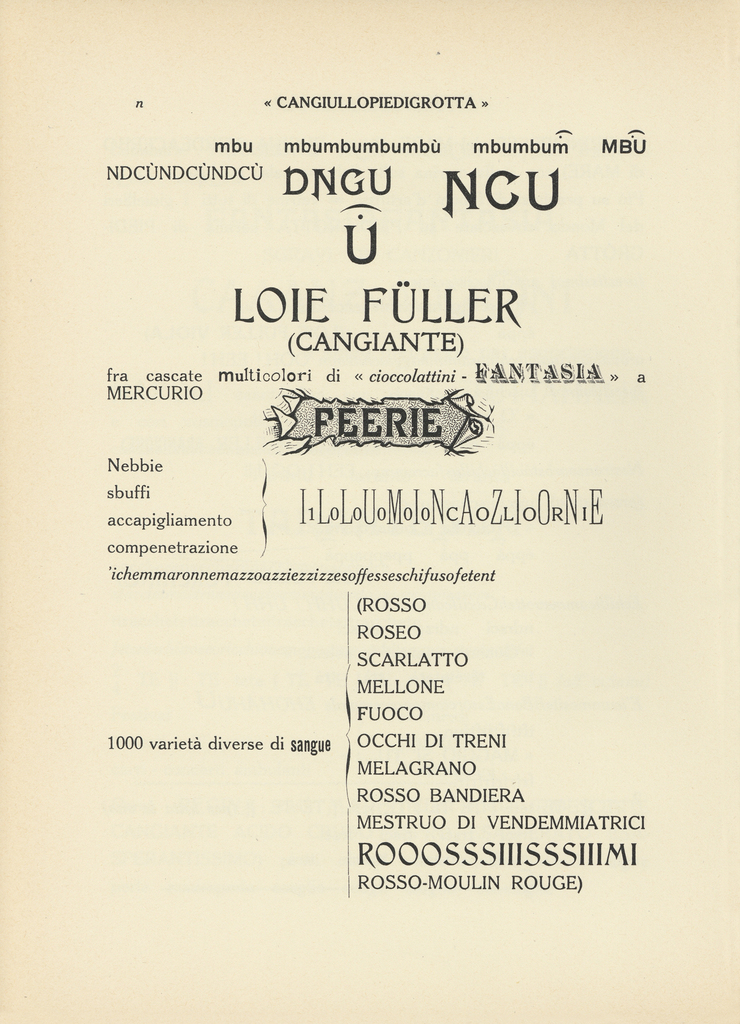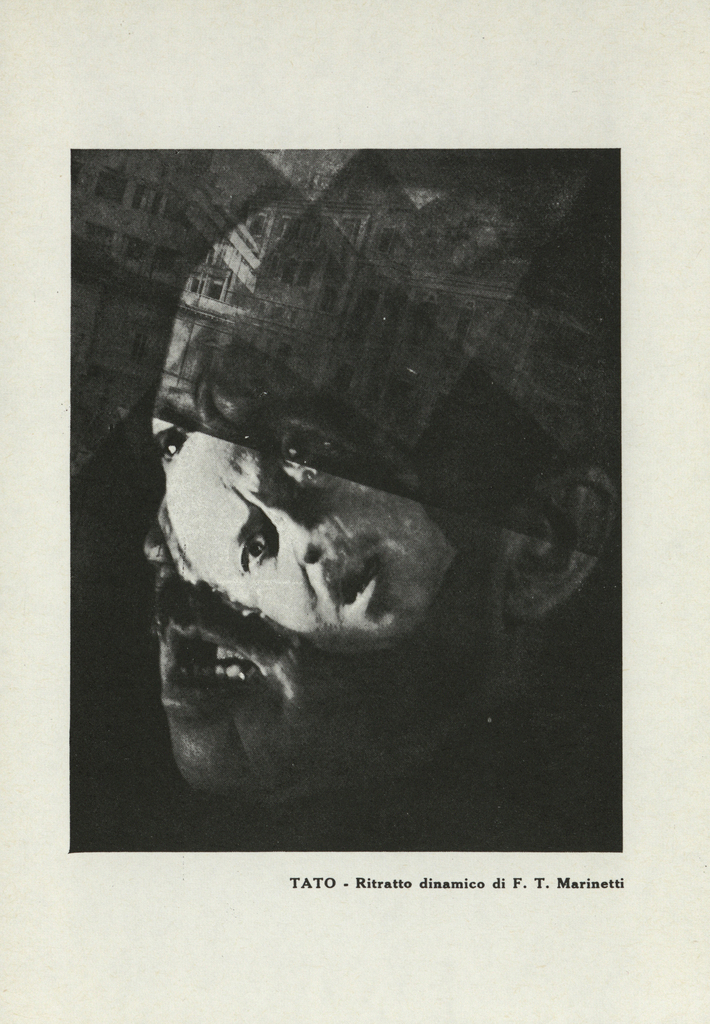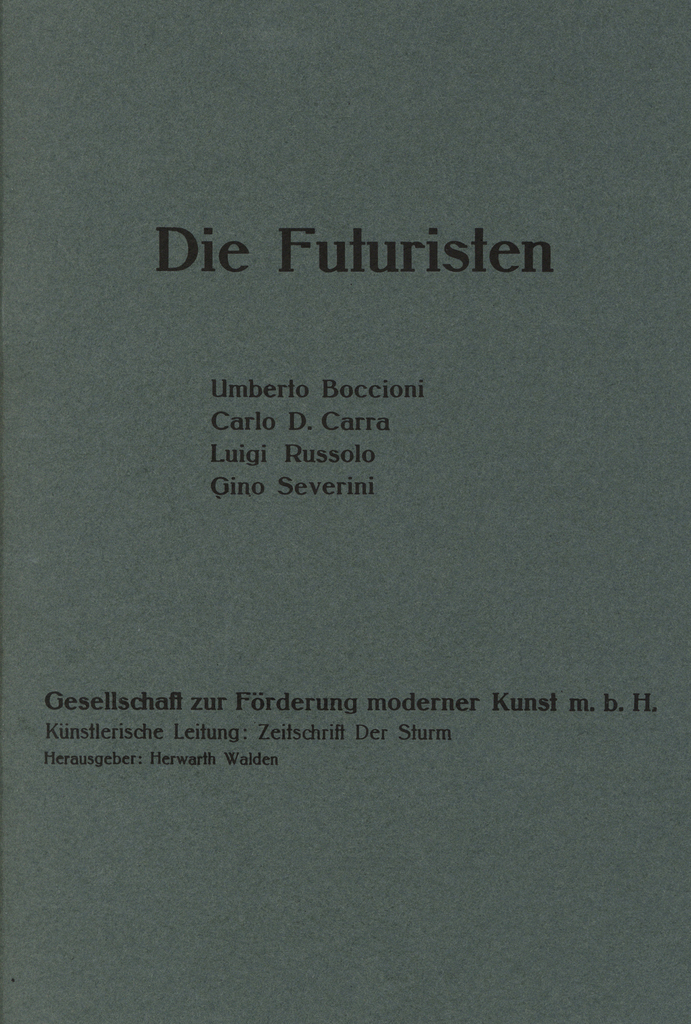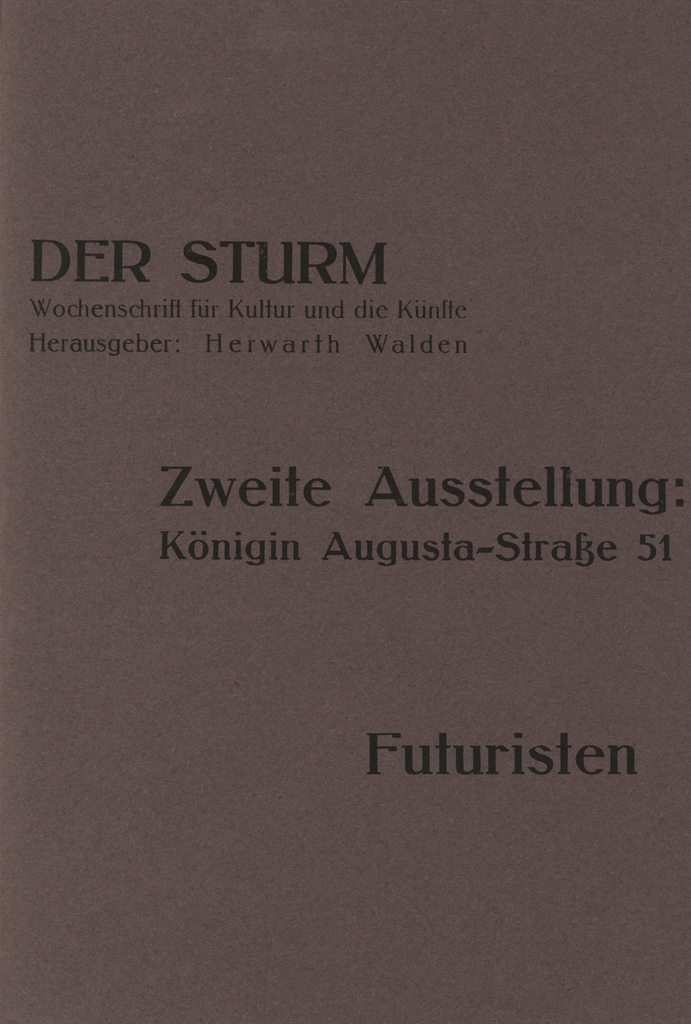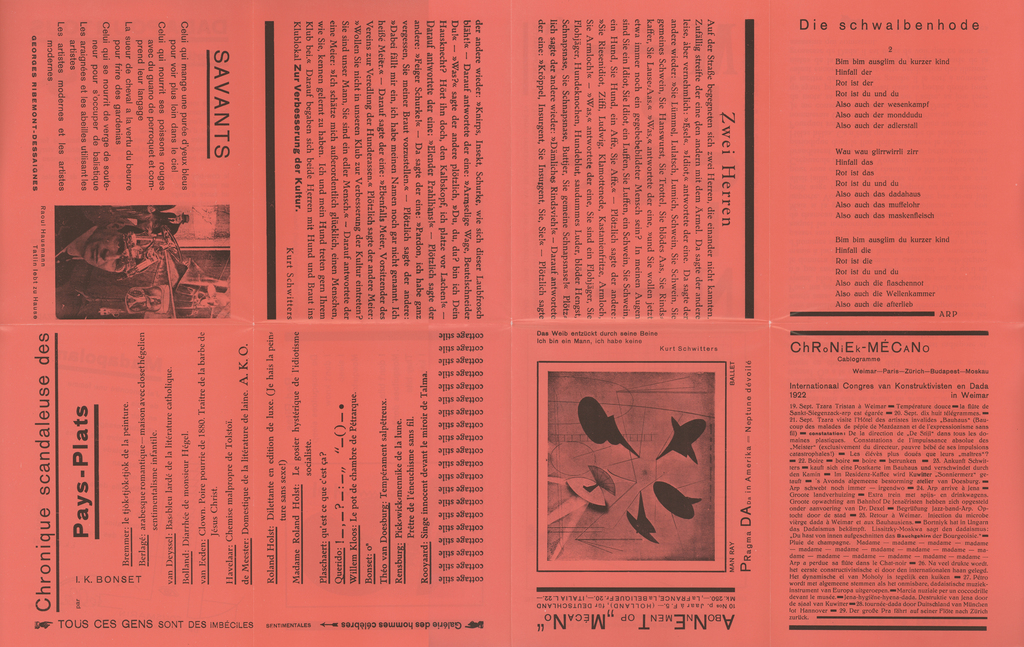Filippo Tommaso Marinetti
Italy (1876—1944)Born in Alexandria, educated between Egypt, Italy and France, Marinetti started his career working for an Italian-French magazine. In 1909 his Manifeste du Futurism was published on LeFigaro: Marinetti revolutionary ideas soon influenced painters such as Balla, Boccioni and Severini, who together published a painters futurist manifesto on their own. He produced Le Roi Bombance and La donna è mobile (Poupées électrique) and published the novel Mafarka le futuriste. During his trip to England he met artists and influenced C.R.W. Nevinson and Wyndham Lewis, whose Vorticism drew from original Futurist ideas. Marinetti’s vision was deeply interwoven with politics: he openly welcomed the war, as he theorised in War the Only Hygiene of the World. He participated to the First Balkan War and the Siege of Adrianopole: this inspired his sound poem Zang Tumb Tumb. He also participated to the victory of Vittorio Veneto. After WWI he founded the Futurist Political Party, which later merged with the Fascist Party. His strive for everything new also brought him to condemn Italian traditional food; instead he described in his Futuristic cookbook the Tactile Dinner. However Mussolini’s little interest in art meant that Futurism was more tolerated than supported by the government. Yet he fought during WWII at the age of 65 and died two years later of heart attack.
Cabaret Voltaire
Der Mistral
Der Sturm. Zweite Ausstellung: Futuristen
Die Futuristen. Gesellschaft zur Förderung moderner Kunst m.b.H
Erster Deutscher Herbstsalon Der Sturm
Esposizione libera futurista
Exhibition of works by the italian futurist painters
Firmamento
Grande esposizione. Boccioni, pittore e scultore futurista
Het Overzicht
La balza futurista
Les mots en liberté futuristes
Mostra nazionale "Fotografia futurista”
Mécano
Noi
Peintres futuristes italiens
Piedigrotta
Poesie a Beny
Primo dizionario aereo italiano
Proa
Teatro
Zenit
